
Visitors view Simen Pagoda, which is featured in the game, in Jinan, Shandong province, on Saturday. (WANG CAIYI/CHINA NEWS SERVICE)
Yang Han, a 42-year-old player, said it took him 15 years to learn that Super Mario Bros was a story "told by a Japanese company about an Italian pipe worker's adventures in the underground tunnels of New York."
Yang got a computer in 2000 and joined the wave of fans playing the Red Alert 2game released the same year. Like most of the games, it was in English and involved a fictional Soviet invasion of the United States and a battle for territorial control. Yang played the game without knowing the history of the Cold War, the Soviet Union, and the Cuban missile crisis. This historical ignorance was echoed by hundreds of players of a similar age to Yang in commentary threads on social media platform Sina Weibo.
On Zhihu.com, China's equivalent to Quora, a hot question has asked why all the legendary characters in internationally popular games, from aliens coming from outerspace to ancient dragons hiding in deep underground holes, all had one thing in common — speaking English.
"The whole gaming world was invented by English-speaking teams based on English-language literature to serve English-speaking customers," was the answer that netizens agreed with the most.
While many of the games are played in English and have cultural roots in Western culture, a vast number of them are produced in Japan, which is considered the creator and innovator of video games.
Patriot games
Gu Kai, a senior games producer who founded Armored Horse Studio, made the popular game Glorious Missionwith the support of the People's Liberation Army. "Prejudices easily get hidden in video games as a cultural product," Gu said, citing Red Alert 2 as an example.
In the game, developed by U.S. company Westwood Studios, Soviet troops that occupy New York City can fire at unarmed civilians, while U.S. troops that invade the Ural Mountains in Russia broadcast from trucks, appealing to residents to follow them.
"Those behind the game development team try to leave each and every player with the impression that the U.S. military promotes humanitarianism and bravely defends peace all over the world," Gu said. "That's apparently not the truth, even when viewed by U.S. media outlets, but they can repeat such misinformation a hundred million times to players around the world and always get some believers."
This is a key reason why there have always been voices calling for Chinese teams to develop games based on Chinese literature and promote them around the world.
At the annual session of the Chinese People's Political Consultative Conference National Committee in 2023, member Guo Yuanyuan, who is also vice dean of the School of Culture and Communication at the Capital University of Economics and Business, called for the domestic video game industry to promote its products overseas to gain global influence. This was despite popular domestically developed games then seldom having an impact overseas.
It was not until Honor of Kings, a smartphone game that allows users to fight as heroes in teams, was successful in 2023 that Chinese games with Chinese heroes finally gained international standing.
By July, the game had over 50 million registered users worldwide from more than 160 countries and regions.
Then came the recent phenomenon of Black Myth: Wukong, based on the Chinese classic novel Journey to the West, which tells how a monkey born out of natural forces acquired skills and guarded his master on a journey to a Buddhist mountain to get holy scriptures.
From the game's official release on Aug 20 until Aug 22, the maximum number of global players on the Steam platform was 2.2 million, 2.35 million and 2.4 million respectively. The number of online players has exceeded those for popular games such as Counter-Strike 2, Dota 2, and Elden Ring, and are second only to the record set by PlayerUnknown's Battlegrounds.
By the evening of its release day, over 3 million copies of the game had been sold on Stream's international video game digital distribution service. By Friday evening, the total number of copies sold exceeded 10 million. Another 1.5 million copies were sold on WeGame, Epic! and PlayStation services, with total sales exceeding 1.5 billion yuan ($210.3 million).
On X, Meta, formerly Facebook, and Quora, a question quickly spread among international players — who is that Chinese monkey character in Black Myth: Wukongand what's the story behind him?



















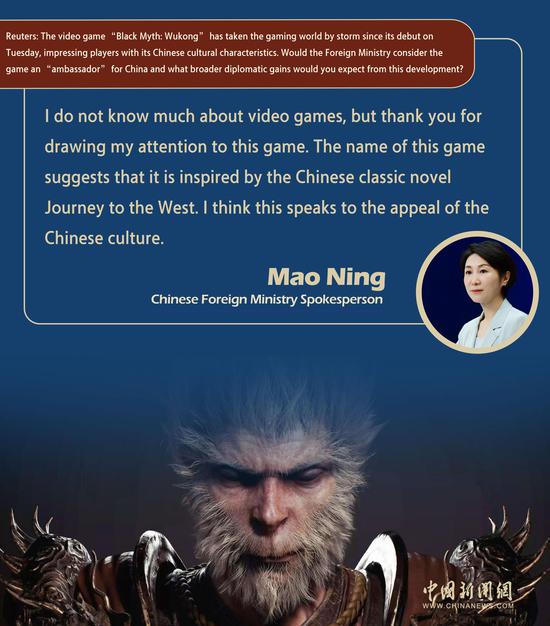


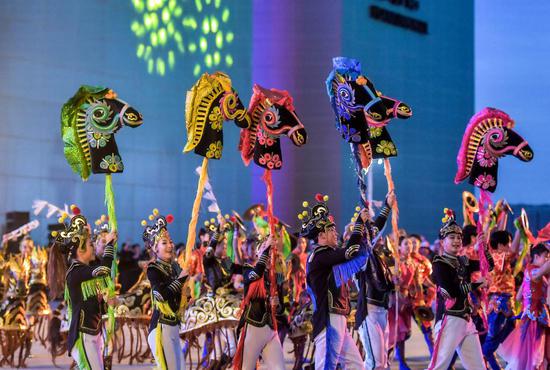



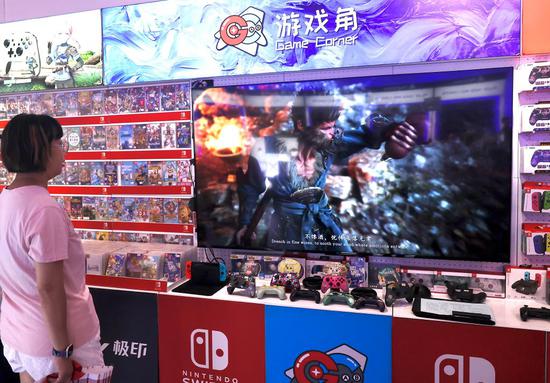
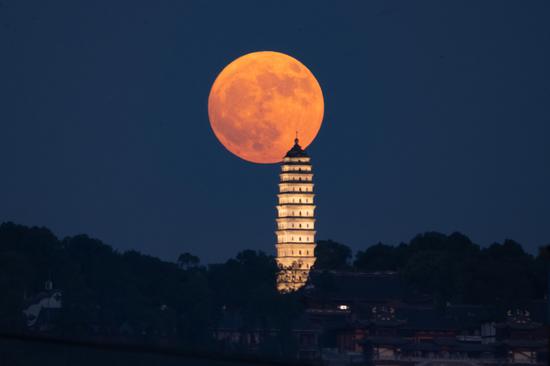

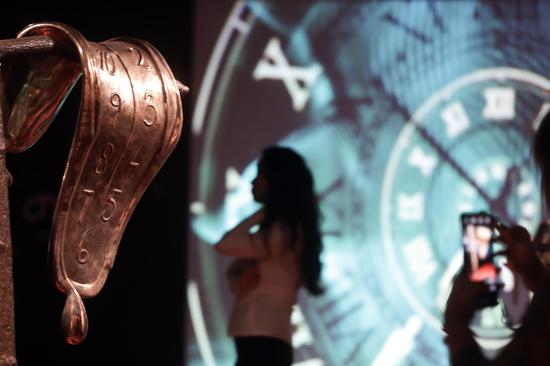
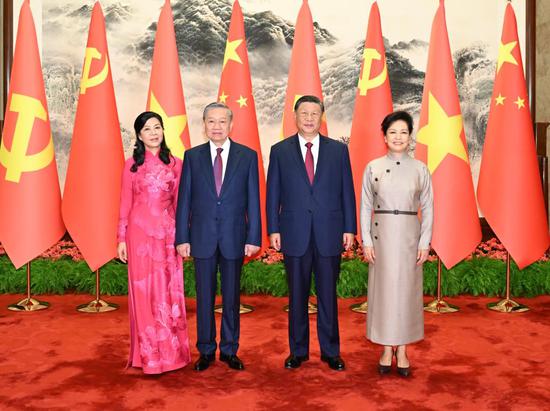











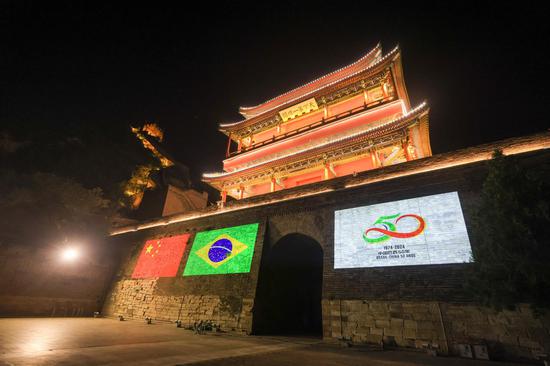



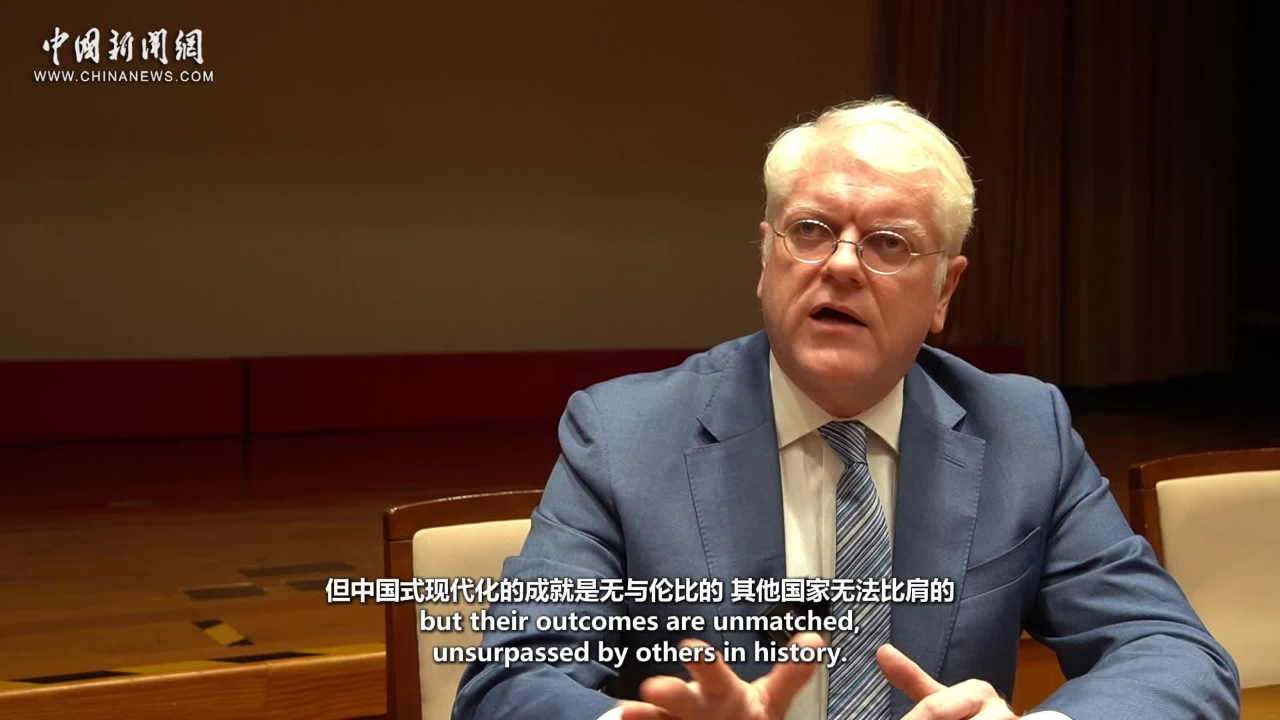



 京公网安备 11010202009201号
京公网安备 11010202009201号